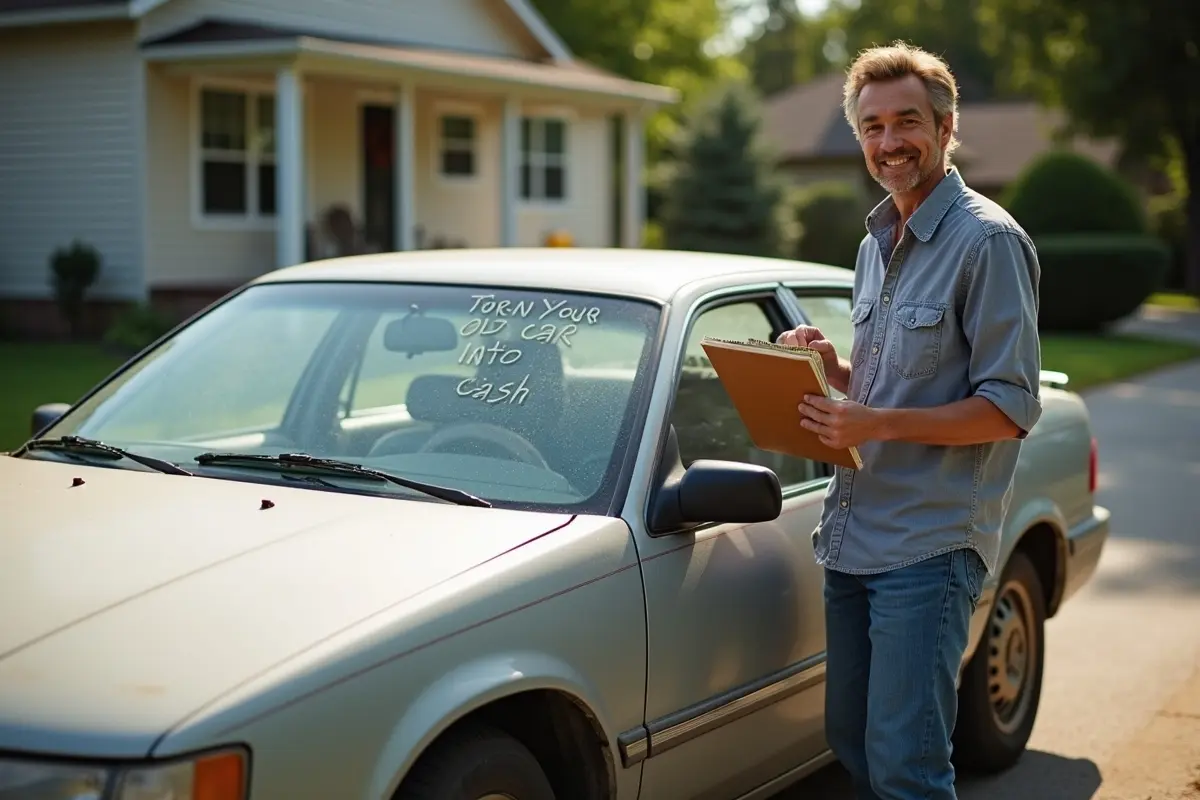Got an old car taking up space in your driveway? Whether it’s been sitting unused for months or just isn’t running like it used to, you’ve probably wondered if it’s worth anything. The good news? Even that beat-up vehicle could still put some extra cash in your pocket. From junkyards to specialized car-buying companies, there are plenty of ways to turn your old ride into money without much hassle.
Let’s walk through your options, so you know exactly how to get the best deal for your car, whether it’s a clunker or still in decent shape.
What Determines the Value of Your Old Car?
Before you start making calls or filling out online forms, it’s helpful to understand what makes your car valuable. Even if it’s not drivable, companies will look at:
Make and Model – Certain cars, especially sought-after models, can fetch more due to higher demand for parts or resale potential.
Condition – Is the car still running? Or is it purely scrap material? Even damaged cars have value because of their parts and the metal they contain.
Mileage – Lower mileage often means higher value. High mileage? Not a deal-breaker, but it does affect offers.
Age – Some older cars can be classics, while others are worth more as scrap.
Market Demand – If there’s a high demand for specific parts from your car’s make and model, it could significantly increase what buyers are willing to pay.
Why Selling to Car-Buying Companies Is a Smart Move
Sure, you could list your car online or try selling it to an individual buyer, but working with companies that specialize in buying cars is often faster and easier. Here’s why this route works for so many people:
- Convenience – Car-buying companies handle everything, from valuation to pick-up, saving you time and effort.
- Guaranteed Offers – Unlike selling privately, these companies typically provide fixed offers after evaluating your car.
- No Repairs Needed – They’ll take your car as-is, whether it’s pristine or a total wreck.
- Fast Process – Many companies can get the car off your hands and cash in your wallet within days.
- Eco-Friendly Disposal – When cars are no longer drivable, these companies often recycle parts and materials responsibly.
Now that we’ve got the basics covered, let’s get into how to maximize your payout.
Maximizing Your Car’s Junk Car Value
When your car’s better days are behind it, it might seem like the only option is to scrap it. But don’t assume you’ll get pennies! The junk car value depends on a mix of factors, including the weight of the vehicle, the current price of scrap metal, and the demand for its parts.
Here’s how you can squeeze every dollar out of your car:
- Gather All Relevant Details – Know your car’s make, model, year, mileage, and general condition. Companies will ask for this to give you an accurate quote.
- Shop Around for Quotes – Different companies may offer vastly different prices. It’s worth contacting multiple buyers to find the best deal.
- Remove Personal Items – This isn’t just about cleaning the car; it’s about ensuring nothing of value (or sentimental importance) gets left behind.
- Provide Honest Information – Misrepresenting your car’s condition can lead to a reduced offer when the buyer inspects it.
- Consider the Timing – Scrap metal prices can fluctuate. If you’re not in a rush, keeping an eye on the market could help you sell when prices are higher.
Where to Sell Your Old Car
Now that you’ve prepped your car and gathered quotes, it’s time to decide where to sell. Here’s a breakdown of the most common options:
1. Car-Buying Companies
These businesses specialize in buying cars in any condition. They’re fast, reliable, and often provide free towing services. Plus, they’ll pay you upfront, so there’s no waiting around for a check to clear.
2. Junkyards
If your car is more “scrap metal” than “vehicle,” local junkyards can be a solid option. Keep in mind, though, that you’ll likely need to tow the car there yourself if they don’t offer pick-up services.
3. Online Car Buyers
Many online platforms make it easy to sell your car from the comfort of your home. Just fill out a form, get a quote, and arrange pick-up.
4. Dealerships
If your car is still functional, some dealerships will take it as a trade-in for a new or used car. However, trade-in values tend to be lower than what you might get from a car-buying company or private sale.
5. Private Buyers
Selling directly to an individual can bring in more money if the car is in good condition. However, this route requires more time and effort, including creating listings, meeting potential buyers, and handling paperwork.
Tips for a Smooth Sale
To avoid unnecessary headaches during the selling process, keep these pointers in mind:
- Have Your Paperwork Ready – This includes the title, registration, and any maintenance records.
- Ask About Fees – Some companies offer free pick-up, but others might deduct towing costs from your payout.
- Be Realistic – If your car is severely damaged or doesn’t run, don’t expect the same payout as a working vehicle in decent condition.
- Watch Out for Scams – Always deal with reputable buyers and avoid companies that seem overly eager without inspecting the car first.
From Clunker to Cash in No Time
Selling your old car doesn’t have to be stressful or time-consuming. Whether it’s barely holding together or still has a bit of life left, there’s someone out there willing to pay for it. The key is knowing your options, shopping around for quotes, and being prepared with all the necessary information.
So, why let your old car sit there collecting dust when it could be putting money in your pocket?




